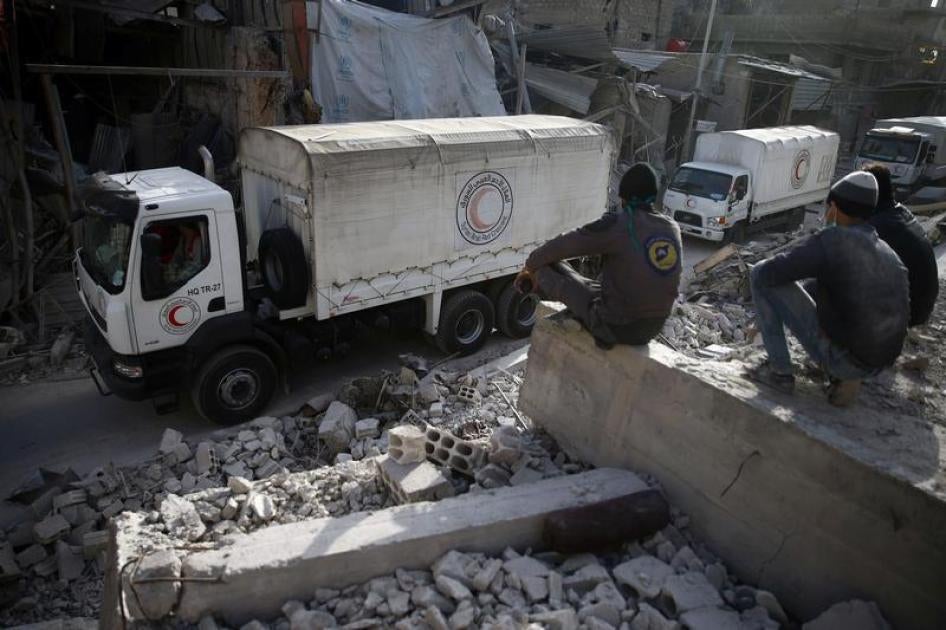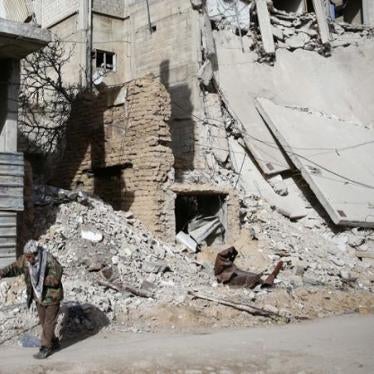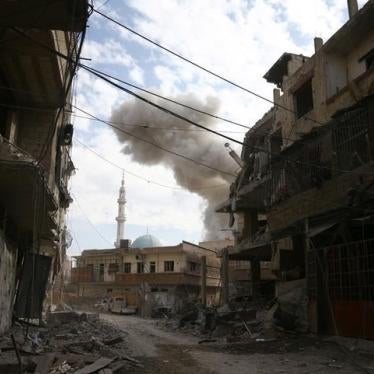Nearly two weeks ago, after days of fitful negotiations, the UN Security Council passed a resolution that urged parties to Syria’s conflict to allow humanitarian aid and medicine to reach nearly half a million desperate civilians trapped in Eastern Ghouta, a Damascus suburb under siege by Syrian government forces. The resolution was instructing all parties simply to do what they are required to do under the law of armed conflict.
So far, the Eastern Ghouta resolution has been largely ignored by the Syrian government. And Syria’s failure to implement it has only been made worse by Russia’s apparent inability or unwillingness to push its ally in Damascus to comply.
France and Britain called for an emergency Security Council meeting to discuss the failure to implement resolution 2401. Council members used today’s meeting to demand that Russia, the Syrian government, Iran, and other parties to the conflict allow humanitarian aid and medical evacuations to begin – immediately, safely, and without pause.
It needs to do more. The Security Council should impose an arms embargo on Syria and sanctions against Syrian officials implicated in international law violations in Eastern Ghouta and elsewhere. Human Rights Watch has documented many of these violations in Eastern Ghouta, as the Syrian government’s flouting of international law and Security Council resolutions. The council should also request that the UN send monitors to oversee the aid delivery and evacuation of civilians from Eastern Ghouta.
In a small but welcome step, an aid convoy did enter Eastern Ghouta on Monday to great fanfare. But the convoy faced problems. The air and ground assault, supposedly aimed at a few militants in Eastern Ghouta, continued while the convoy moved through rubbled streets. There were media reports of Syrian government forces removing lifesaving medicine and medical supplies, including insulin, before allowing the aid vehicles into Eastern Ghouta.
Russia has used its Security Council veto 11 times to protect the Syrian government from criticism and scrutiny. After delaying the adoption of resolution 2401 for days, Russia only agreed to support it after ensuring the Syrian government could continue targeting Islamic State (also known as ISIS) and Al-Qaeda-linked militants during any humanitarian “ceasefire.”
It’s time to stop using that excuse to prevent aid reaching civilians. And it’s time for the Security Council to take action to ensure its resolutions aren’t meaningless.










